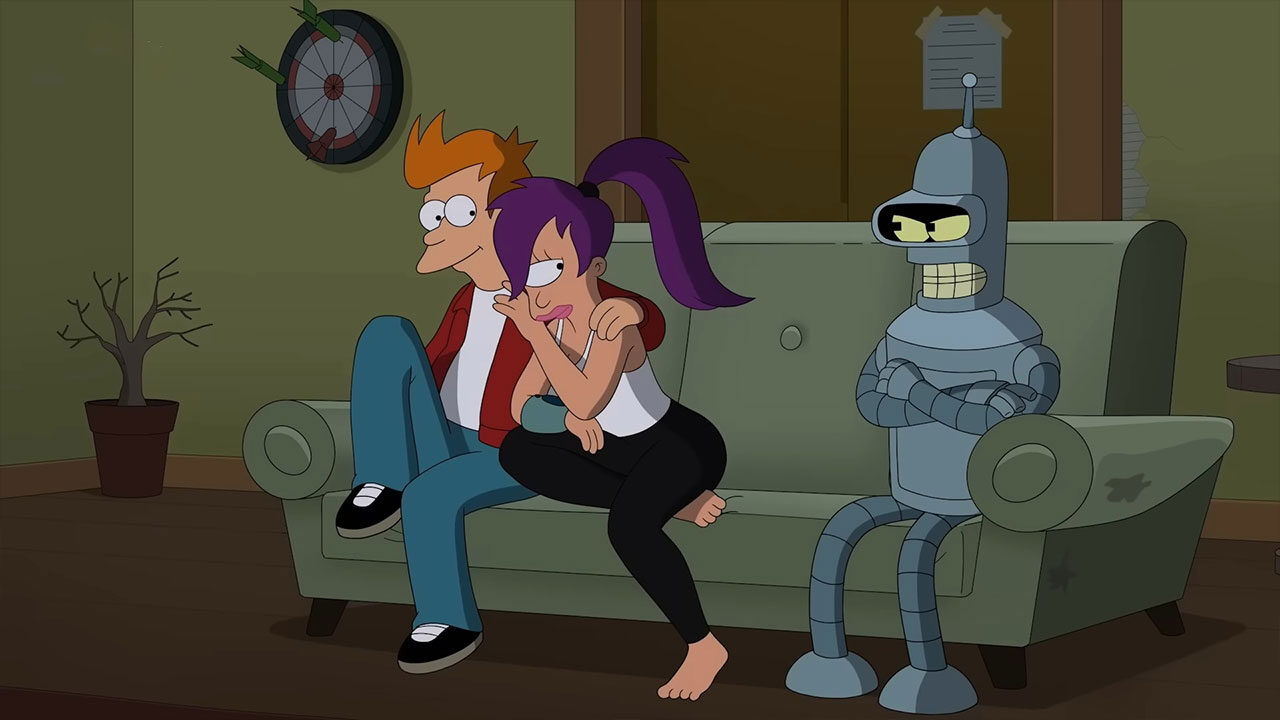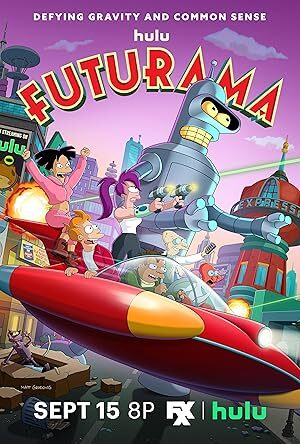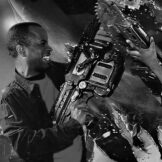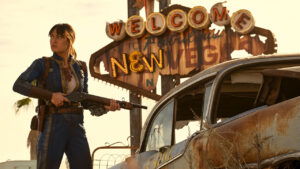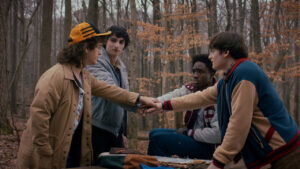If anyone were ever to ask me to name a television series that is the epitome of resilience, it would be Futurama, no questions asked. In the 26 years since the show’s inception, the animated sci-fi sitcom from The Simpsons creator Matt Groening has been cancelled twice, the first time by Fox Broadcasting in 2003 after a four-year run and the second by Comedy Central in 2013, also after a four-year run, despite receiving numerous accolades and critical acclaim throughout both partnerships, not to mention a fervently loyal fandom.
Futurama also survived a gap of next-to-no new content for more than a decade before the Disney-owned streaming service Hulu stepped in to revive it for two new seasons, much like the series’ main character Fry being thawed out from deep cryo-sleep. The current 13th season is the second for Futurama under Disney+, which is set to air through 2026. Just as with Season 12, the show’s brand of comedy remains fresh and free of freezer burn.
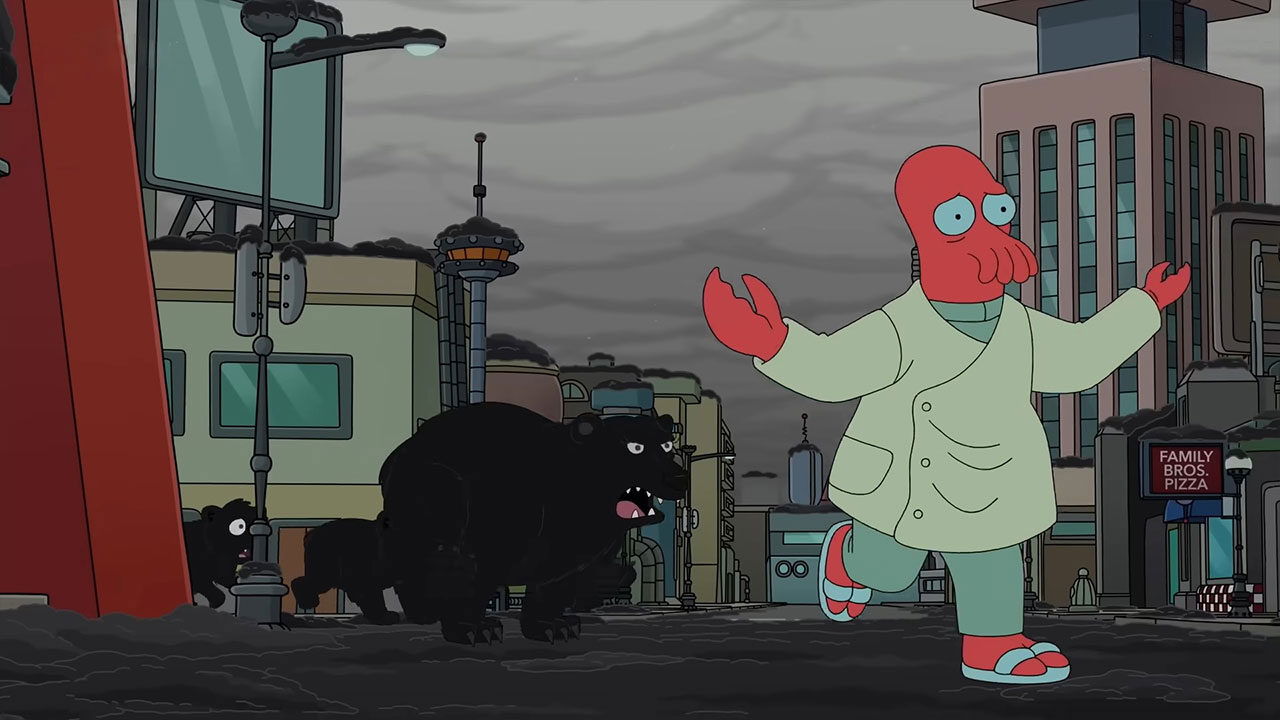
Season 13 continues the misadventures of former New York pizza delivery boy Philip J. Fry, who, after accidentally falling into and activating a cryogenic sleep pod, wakes up 1,000 years in the future. A stranger out of time, he soon finds a job with Planet Express, an anything-goes package delivery company owned and run by slightly mad scientist Professor Hubert J. Farnsworth, Fry’s distant relative and only living descendant. Working alongside Fry at Planet Express are an assortment of misfits: the oddly attractive, one-eyed sewer mutant and spaceship captain Turanga Leela (Fry’s girlfriend); the arguably psychotic and high-functioning alcoholic robot Bender Bending Rodriguez; and the amicable yet unsettling humanoid crustacean, Dr. Zoidberg.
“The brilliance of Futurama is that, nearly 30 years on, its comic timing remains both impeccable and unpredictable.”
As with Futurama Season 12, the timeline of Season 13 remains “reset,” so viewers can jump in cold without feeling they have missed anything narrative-wise that cannot be caught up on later. Fry and Leela are still dating, and the “kids” of other crew members introduced in earlier seasons (Dwight, Cubert, Axl, etc.) remain present. Otherwise, there is very little “lore catch-up” required for lapsed fans or newcomers. Futurama continues to be, at its core, a traditional situational comedy.
As is the series’ modus operandi, Season 13 continues to delightfully savage a variety of current 21st Century topics from a uniquely aloof and often hilariously self-unaware 31st Century perspective, including but not limited to hot takes on global warming, religious faith, bureaucracy, crooked election schemes, dating apps, internet dependency and even kids’ screen-time addiction. Of course, with the entirety of Sci-Fi considered to be within Futurama’s satirical wheelhouse, just about everything concerning science, fiction, technology and entertainment that’s even tangentially related is also fair game, which means that viewers can expect side-splitting cultural references, gags and guest cameos (with both heads preserved in jars and not) coming at them rapid fire in every episode.
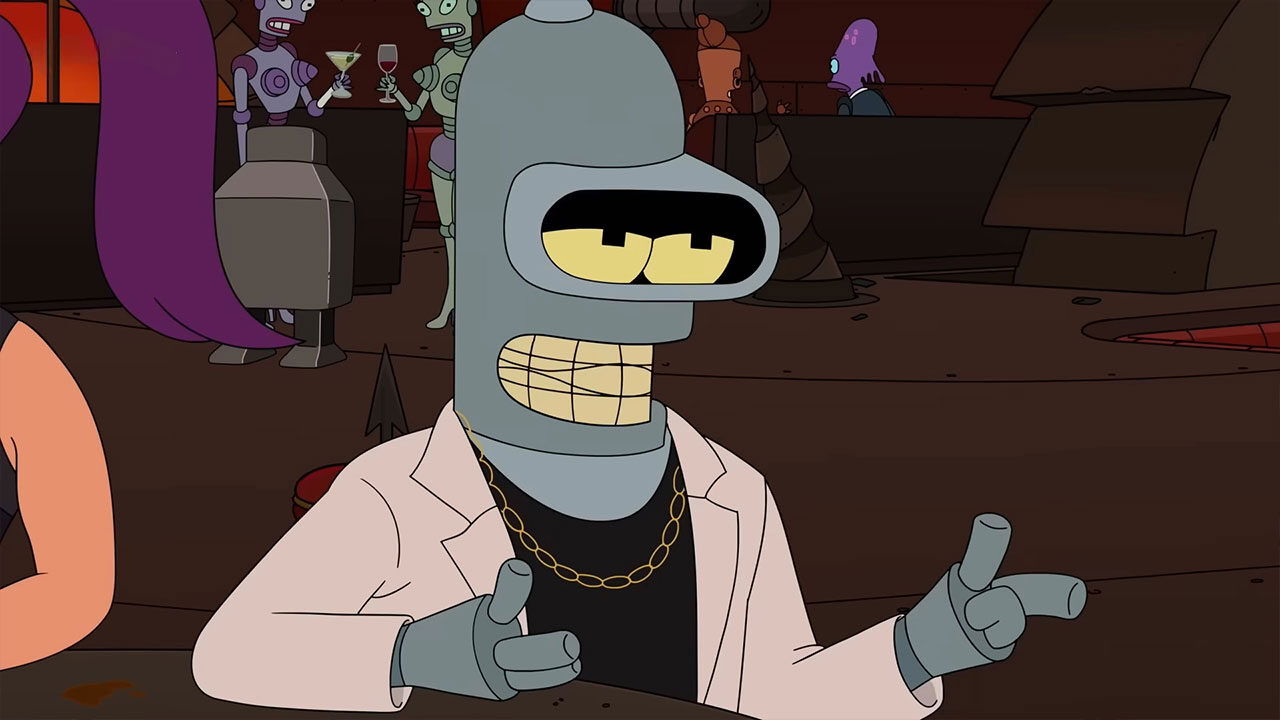
Likely a knowing wink in reference to Futurama’s multiple time loops and resets in past seasons, the writing in Season 13 gives off an almost thematic, self-aware “you should know better already” vibe that is fearless in its scathing critique of both the 21st Century’s many societal and environmental blunders, well as present-day 3035’s continued indifference in finding real solutions. As per usual, the world ends up looking to Dr. Farnsworth to concoct last-minute fixes that ultimately result in the creation of all new crises that shockingly get kicked down the curb.
For example, when the current Futurama-lore routine of dropping a massive ice cubes into the Arctic Ocean in order to combat global warming (introduced way back in Season 4) is no longer deemed sustainable, Dr. Farnsworth unveils a reckless plan to trigger an eruption from Pompeii’s Mt. Vesuvius in order to create an ash cloud large enough to submerge earth into a controlled volcanic winter to balance things out.
Likewise, when the Planet Express team is called upon to witness a must-attend, ”Interstellar” celestial event at the edge of the universe, Farnsworth employs cloning to create highly disposable versions of the entire crew in order to deliver the original team to their destination alive, a moral quandary with hysterically unavoidable consequences.”
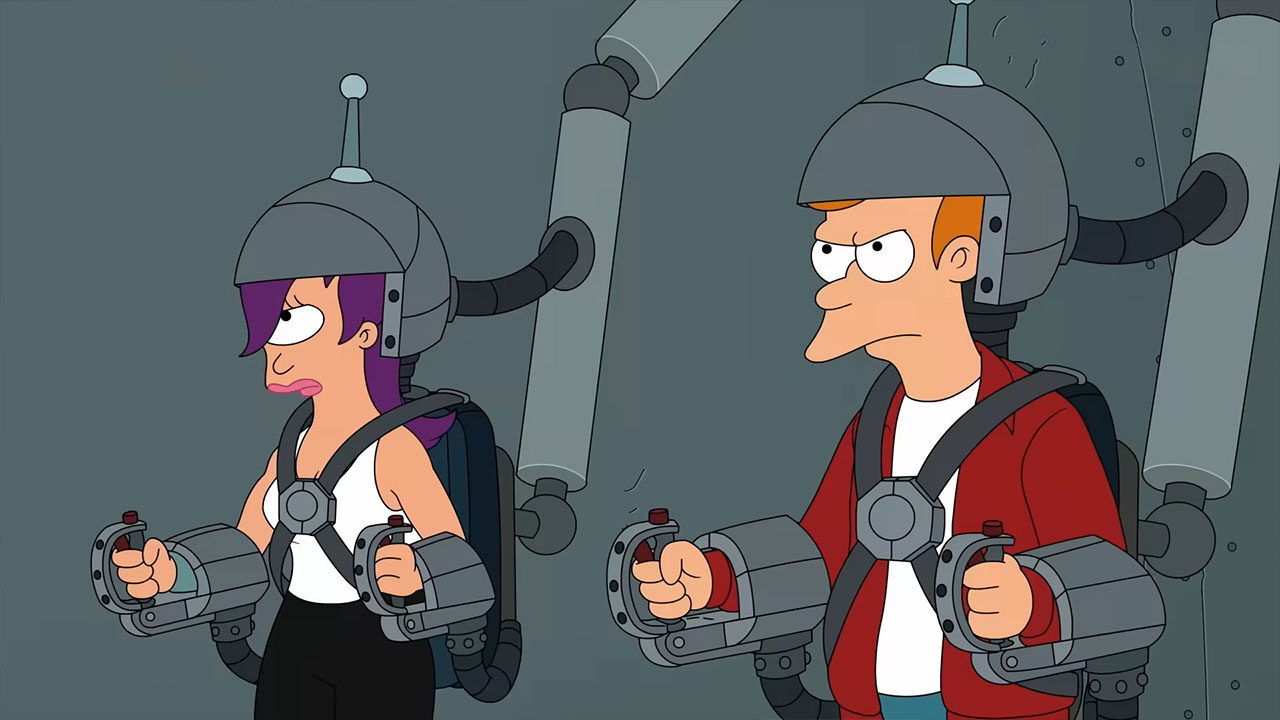
Of course, not all of Season 13’s episodes are about Farnsworth’s ridiculously insane projects. An number of them are actually touching, character-building diversions into the lives of Planet Express’ other characters, such as Fry and Leela’s deepening relationship as a couple, secondary characters Kif Kroker and Hermes Conrad’s respective struggles to bond with their rebellious teenage sons, and occasionally, Dr. Farnsworth’s lamentations of old age and his yearning to engage his scientific mind with matters beyond the physical realm, the latter resulting in an episode involving an mathematical explanation of the “Infinity of Infinities” that absolutely blew my mind.
“If anyone were ever to ask me to name a television series that is the epitome of resilience, it would be Futurama, no questions asked.”
And of course, there are the always self-serving but never dull escapades sparked by Bender’s antics, which the Planet Express crew are frequently dragged into fixing. It wouldn’t be Futurama without them.
The brilliance of Futurama is that, nearly 30 years on, its comic timing remains both impeccable and unpredictable. The show still elicits unrestrained laughter not only through its complex jokes, self-aware humour and fourth-wall-breaking dialogue, but also with groan-worthy puns and dad jokes, sprinkled in so deftly that they linger in memory. Two favourites: “F.I.C.I. Stinks” and “The Coast God.”
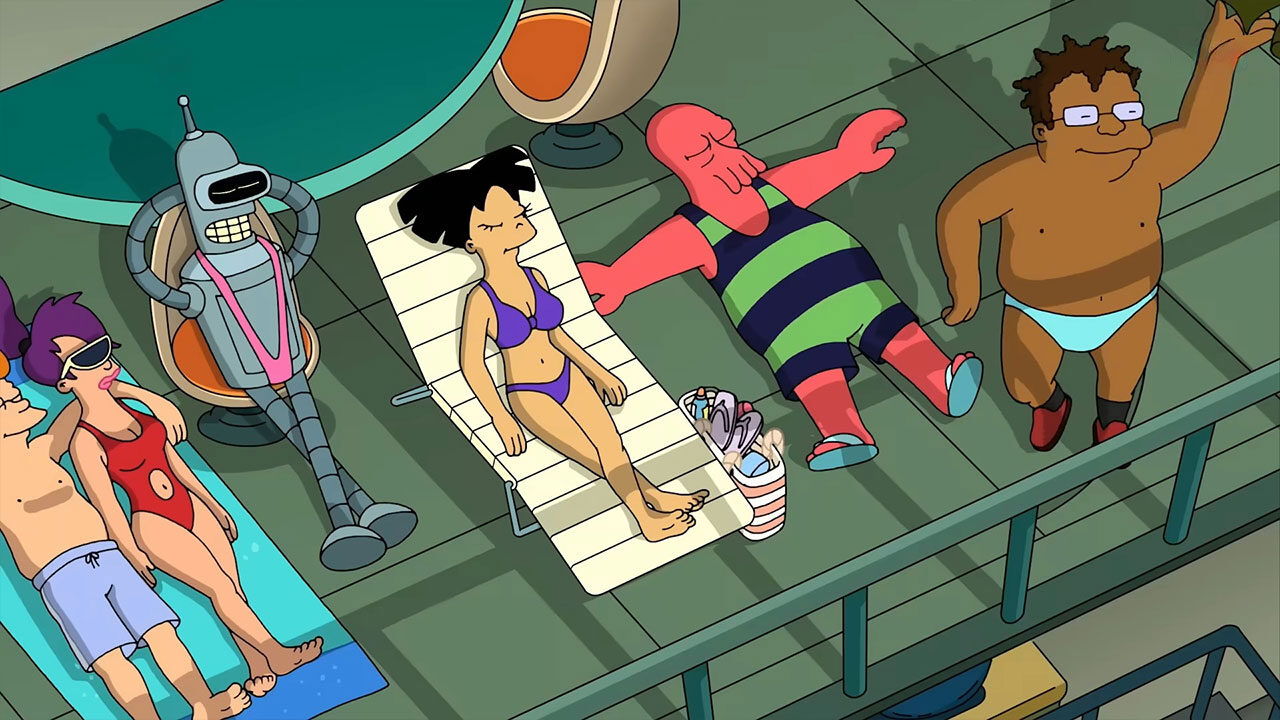
It goes without saying that the main cast’s voice actors have delivered once again. While it is easy to praise the undeniable talents of series anchors Billy West, John DiMaggio, Phil LaMarr, Katey Sagal and others, Season 13 is such a true ensemble effort that no one actor’s contribution stands above the rest. Also worth noting is the remarkably consistent animation work from Rough Draft Studios’ California and South Korea houses, as well as South Korea’s Digital eMation studio, whose combined efforts have kept Futurama’s look sharp for decades.
While Futurama has not enjoyed the same magnitude of popularity or longevity as its older, more successful cousin The Simpsons, this two-season run on Disney+ presents an opportunity to change that. Season 13 is operating at a higher comedic level and quality than the series has ever achieved, making it one of the best reasons to subscribe to the service.
Or, as Fry himself might say: “Shut up, give your money to Disney+ and watch Futurama so we can get another two seasons!”
